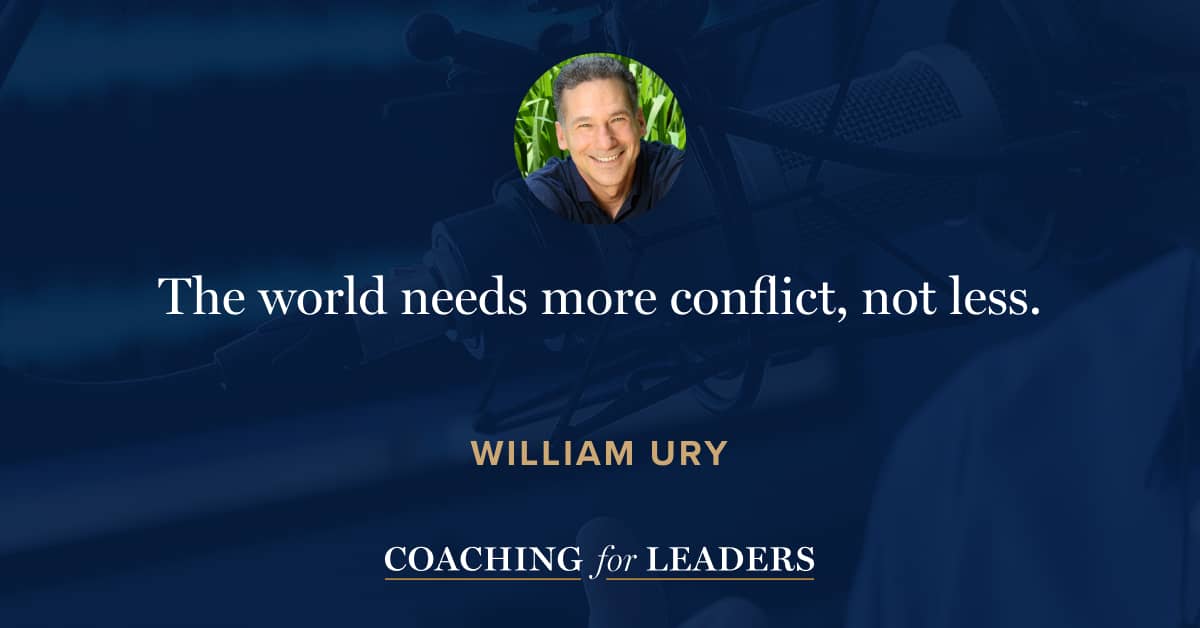William Ury: Possible
William Ury is one of the world’s best-known experts on negotiation, and the co-author of Getting to Yes, the all-time bestselling book on negotiation with more than 15 million copies sold. He is co-founder of Harvard’s Program on Negotiation and has served as a negotiator in many of the toughest disputes of our times. He has taught negotiation to tens of thousands, and consulted for dozens of Fortune 500 companies, the White House, the State Department, and the Pentagon.
William has served as a negotiation adviser and mediator in conflicts ranging from Kentucky wildcat coal mine strikes to wars in the Middle East, Colombia, Korea, and Ukraine. He is an internationally sought-after speaker and has two popular TEDx talks with millions of views. He's also the author of Possible: How We Survive (and Thrive) in an Age of Conflict*.
We often assume that conflict is bad, but William says we actually need more conflict, not less. In this conversation, we explore three practices that will help you thrive in the toughest negotiations. And no surprise — the biggest obstacle in getting what we want is almost always ourselves.
Key Points
- We need more conflict, not less. The best decisions often emerge from a negotiation.
- The biggest obstacle in negotiation is ourselves. Pauses and silence prevent us from reacting without thinking.
- Zoom in to examine the interests that are behind your stated positions. This often elicits meaningful steps.
- Rarely are conflicts about surface issues. Uncovering your deeper motivations will help you approach negotiation more productively.
- Negotiation doesn’t only happen at one table. Zoom out to at least two other tables: the internal negotiations of both sides.
Resources Mentioned
- Possible: How We Survive (and Thrive) in an Age of Conflict* by William Ury
Interview Notes
Download my interview notes in PDF format (free membership required).
Related Episodes
- Negotiate As If Your Life Depended On It, with Chris Voss (episode 262)
- How to Find Confidence in Conflict, with Kwame Christian (episode 380)
- How to Negotiate When Others Have Power, with Kwame Christian (episode 416)
Discover More
Activate your free membership for full access to the entire library of interviews since 2011, searchable by topic. To accelerate your learning, uncover more inside Coaching for Leaders Plus.





